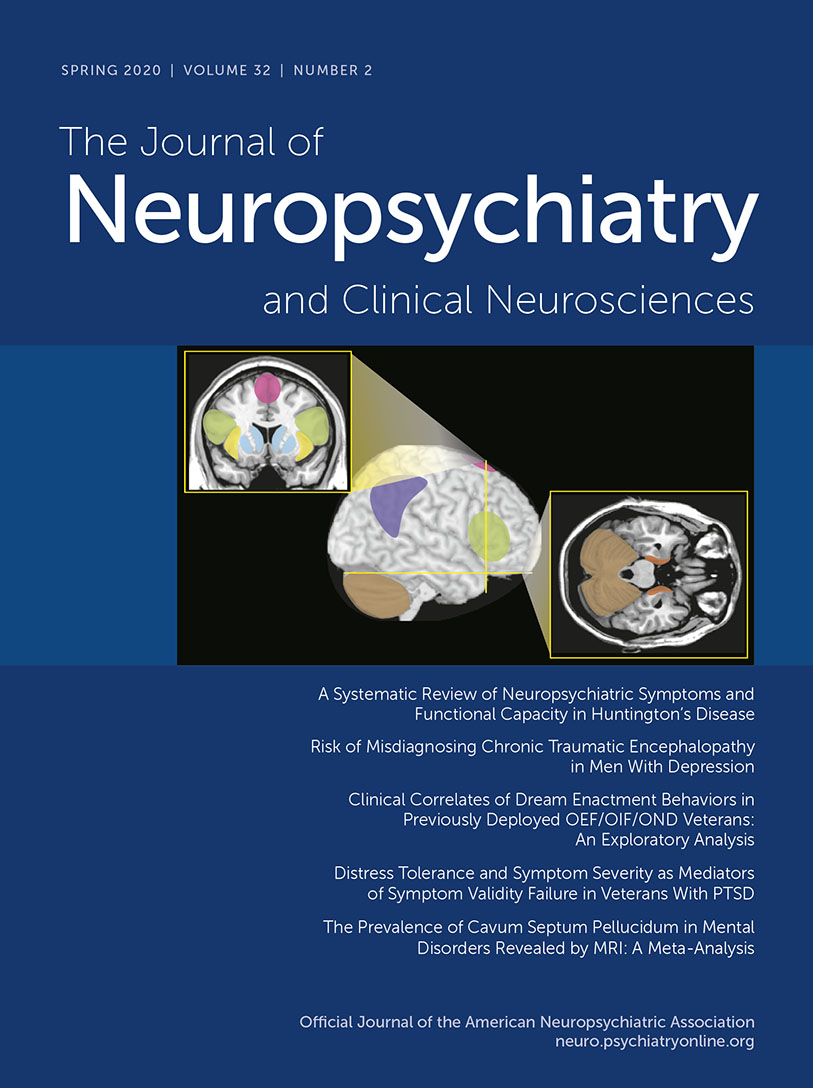Clinical Correlates of Dream Enactment Behaviors in Previously Deployed OEF/OIF/OND Veterans: An Exploratory Analysis
Abstract
Objective:
Veterans with posttraumatic stress disorder (PTSD) frequently report dream enactment behavior (DEB). Although DEBs are associated with PTSD symptoms, their relationship with other sleep disorders, including REM behavior disorder, warrants reexamination of their clinical correlates.
Methods:
The investigators used a cross-sectional, exploratory analysis to compare demographic and clinical characteristics of veterans endorsing regularly occurring DEB compared with those endorsing no or infrequent DEB. The participants comprised a convenience sample of servicemembers who were previously deployed to Operation Enduring Freedom/Operation Iraqi Freedom/Operation New Dawn (OEF/OIF/OND) and enrolled in an ongoing cohort study.
Results:
Of the 78 eligible participants, 19 (24.4%) endorsed DEBs occurring at least once per week in the past month. Compared with participants who reported no or infrequent DEBs, participants with regularly occurring DEBs had poorer sleep quality, greater PTSD severity, a higher number of reported mild traumatic brain injuries (mTBI) with loss of consciousness, and a higher likelihood of being diagnosed with sleep disorders. After adjustment for global sleep quality, a significant association persisted between DEBs and the number of mTBI with loss of consciousness but not between DEBs and the severity of PTSD symptoms.
Conclusions:
These results suggest that mTBI may disrupt neural circuits regulating sleep among OIF/OEF/OND veterans. Prospective, polysomnographic assessment of muscle tone and behavioral events during REM sleep is needed to characterize the physiology of DEBs in this population.



